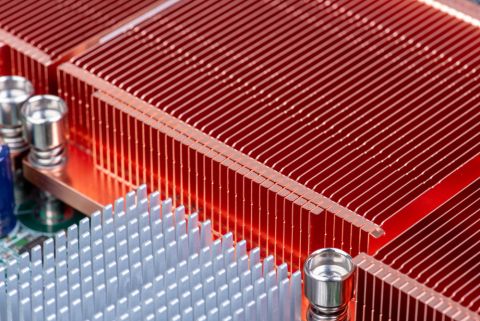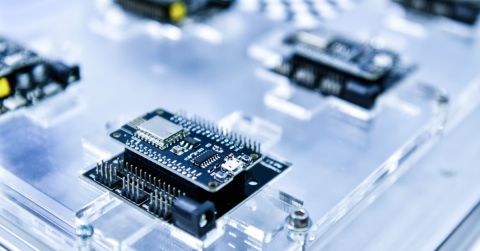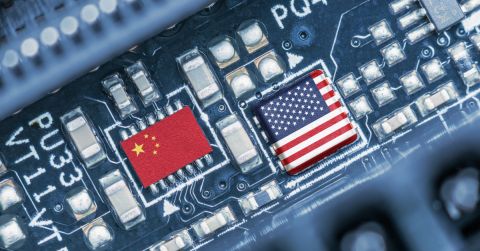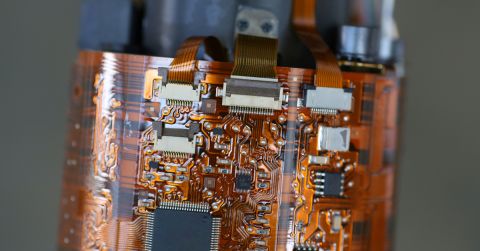The Impact of AI on Electronics Manufacturing

Artificial intelligence (AI) is a source of disruption for many industries, and electronics manufacturing is no exception. From facilitating faster product development to improving quality and fortifying supply chains, AI is revolutionizing how electronic manufacturers design, prototype, source, and build their products. For electronics engineers and manufacturing professionals, understanding these AI-driven changes is essential for staying current in a rapidly evolving sector.
From Concept to Creation: AI Speeds Up Design
One of the most significant impacts of AI in electronics manufacturing is that it speeds up product development and design. Conventional designs are mostly iterative, time-consuming, and subject to errors. With advancements in AI, however, manufacturers can get new products to market faster thanks to the following capabilities:
Automated design tools–Today’s automated design tools guided by AI have become extremely powerful, able to generate PCB layouts at an incredible speed. They can analyze countless possible designs within minutes, which would take human engineers weeks. This super-human capability leads to optimal designs that enhance performance while minimizing production costs.
Accelerated prototyping–AI also enables extremely rapid prototyping. By employing machine learning algorithms, AI-powered tools can quickly run through many design alternatives, simulating performance and identifying possible problems even before making physical prototypes. This virtual prototyping results in fast ideation and enables manufacturers to go from concept to final design quicker.
An excellent example of how AI influences design is the smartphone industry. Major smartphone companies like Apple and Samsung use AI to optimize chip designs and battery performance. AI applications also analyze vast amounts of user data to predict usage patterns, enabling more efficient power management and improved device performance.

Precision Production: AI Takes the Lead
Predictive maintenance–Predictive maintenance is getting a massive boost from today’s more intelligent AI systems. By analyzing data from sensors embedded in manufacturing equipment, AI can detect anomalies and predict potential failures before they occur, enabling timely maintenance to keep operations running. This proactive approach minimizes unexpected downtime, a valuable benefit in a world where production delays are often extremely costly.
Quality control–On the factory floor, AI is creating new efficiencies and improved quality standards. AI-based visual inspection systems are becoming increasingly common. These systems can locate faults more accurately and consistently than human inspectors even in extremely high production-rate environments.
Process optimization–AI systems with machine learning algorithms can analyze vast amounts of production data and then adroitly identify inefficiencies and suggest process improvements. This powers optimized production schedules, reduced energy consumption and improved resource allocation.

A Shift From Mass Production to Mass Customization
AI is ushering in a new era of customization in electronics manufacturing. By leveraging machine learning algorithms and advanced data analytics, manufacturers can now offer unprecedented levels of product personalization. In the consumer electronics sector, AI-driven manufacturing processes enable companies to produce smartphones with user-specific features or wearables tailored to individual health profiles. For instance, Motorola's Moto Maker platform uses AI to optimize the production of customized smartphones, allowing customers to choose from a vast array of design options.
In the medical field, AI enables the production of personalized hearing aids and prosthetics. Companies like Phonak use AI to create hearing aids that automatically adjust to the user's environment, providing a personalized hearing experience.
Supply Chain Smarts: AI Optimizes Logistics
Smart procurement systems–The electronics industry’s complex global supply chains are starting to reap the benefits of smart procurement systems driven by AI. These systems analyze market trends, supplier performance, and demand forecasts to enable better purchasing decisions. They help reduce costs and mitigate risks throughout the supply chain.
Inventory optimization–Another area where AI is making a big impact is in the realm of inventory optimization. By accurately predicting demand fluctuations, AI models help manufacturers maintain optimal inventory levels, reduce carrying costs and ensure product availability.
Supplier risk assessment–AI can help identify supply chain risks and suggest alternative suppliers by analyzing various data sources and evaluating everything from financial well-being to geopolitical trends. This capability has become particularly important in recent years, as global events like the COVID-19 pandemic and geopolitical tensions have demonstrated the vulnerabilities in many electronics supply chains.
AI Adoption: The Things That Slow Us Down
Though promising great benefits, some challenges come with rolling out AI. For manufacturers, high-quality structured data is one of the main obstacles that must be dealt with. Data collected from different manufacturers can vary enormously and usually needs to be skillfully structured to make it valuable for training AI systems.
Another challenge is the initial investment required. While AI can lead to significant cost savings in the long run, the upfront costs of implementing AI systems can be a blocker for smaller manufacturers.
There are also concerns about the "black box" nature of some AI systems. In an industry where traceability and accountability are paramount, the inability to fully explain how an AI arrives at a particular decision can be problematic.

Embrace AI or Fall Behind
The use of AI in electronics manufacturing is an unstoppable trend that portends exciting possibilities. Many industry insiders are particularly interested in the potential of AI to enable more sustainable manufacturing practices. AI-driven optimizations will reduce energy use and material waste, aligning with growing environmental concerns and sustainability initiatives.
The intersection of AI with other emerging technologies – including 5G, IoT, and quantum computing – will drive stunning advancements and create new technological marvels. For example, the confluence of AI and IoT is enabling next-generation smart factories, where every aspect of the manufacturing process is interconnected and optimized in real time by AI.
For electronics professionals, staying abreast of AI developments is not an elective. It's a required course for remaining competitive in an increasingly AI-driven industry. As we look to the future, it's clear that AI will continue to be a powerful force in shaping the next generation of electronic devices and the manufacturing processes used to create them.










